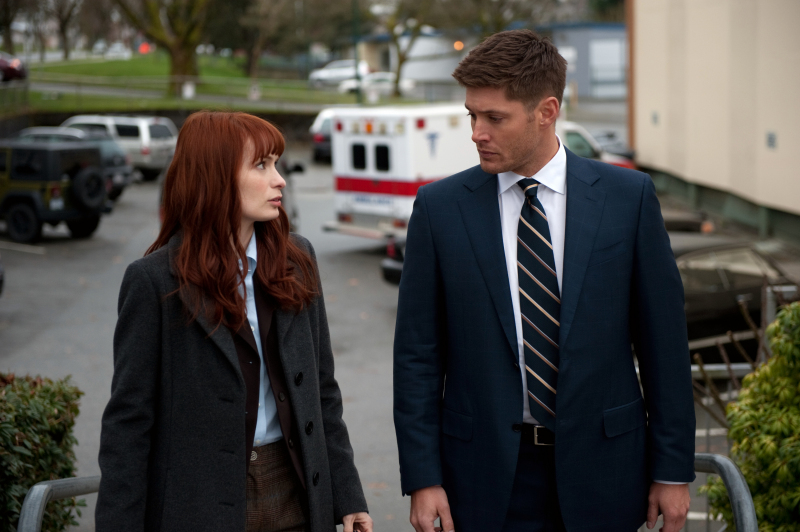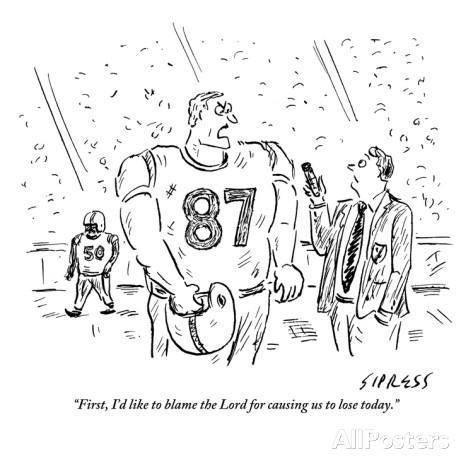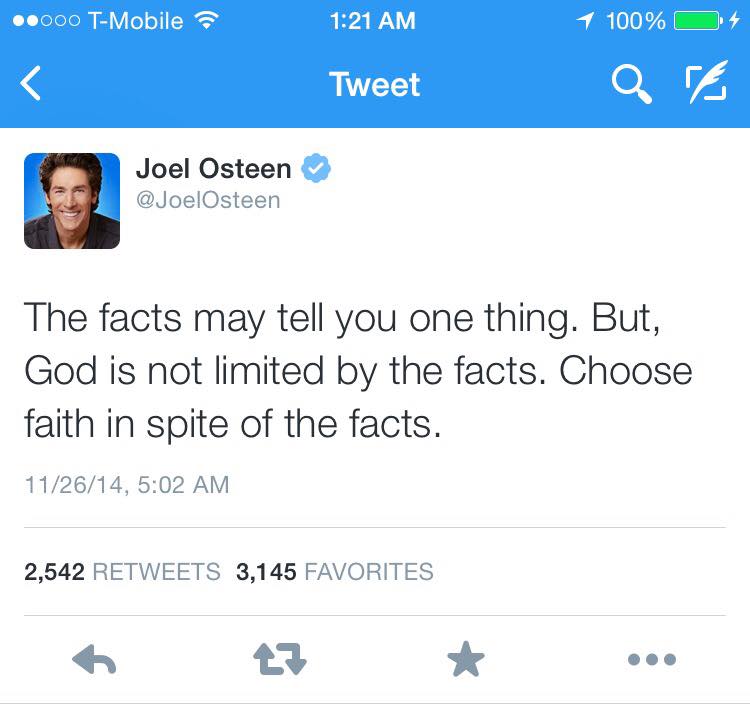What’s In A Miracle?

Miracles, evidence, atheism, and breaking away from fundamentalist Christianity. Let’s get into it.
Here’s my submission to John Loftus’ call for responses to a Q&A in an upcoming Christian documentary on miracles and the evidence thereof. What follows is probably not sound-bitey enough to be used, but I was on a roll and couldn’t stop. Do take note of (7), as it draws from personal experience growing up as a fundamentalist Christian.
(1) Why do you believe I should not believe in God?
You’re welcome to believe whatever you want, and in any god of your choosing. But whatever you believe should be preceded by honest engagement with the evidence, defensible by way of rational argument, and continually challenged and interrogated in the form of skeptical inquiry. That last bit is critical. After all, if your beliefs can’t stand up to scrutiny, the scrutiny is not the problem. And regularly having to explain away inconvenient evidence is a good sign that your beliefs are ready for revision. Such insights can and should be exported far beyond the matter of belief in God.
(2) What’s a miracle?
This is less a historical or scientific question than a philosophical or metaphysical question. How to approach miracles and the supernatural in a formal sense remains a methodological challenge upon which none of us wholly agree. One commonly given definition of a ‘miracle’ is that it is a suspension of the natural order or the known laws of physics, often attributed to supernatural as opposed to natural agencies. This definition places the referent outside historical and scientific methods.
For example, the question of whether Jesus was born of a virgin, walked on water, and raised bodily from the dead; whether the angel Moroni appeared before Joseph Smith; whether the prophet Muhammad split the moon in two and ascended to heaven on a winged horse — conventionally these aren’t questions that either historians or scientists are methodologically equipped to answer. Rather, these are theological questions with philosophical underpinnings that go beyond what the historian can attest.
The reasons being that (1) these disciplines lack the critical methods to resolve questions of metaphysical complexity and (2) such questions imply certain realities that run counter to the factual uniformity of nature and our current rational scientific understanding. While we hang a question mark over miracle claims of the past, we do acknowledge the presence of theological elements and incorporate how beliefs about the supernatural operated within their historical context. That is, historians can address how ancient peoples understood concepts of the divine, how widespread such beliefs were, what effects they had on society and culture, and how those effects informed, set the stage for, and enabled us to make better sense of later events, without rendering a verdict on the historicity of individual theological perspectives.
The key point here is that answers to questions about the supernatural cannot rest on historical or scientific evidence alone. As the biblical scholar Dr. James Tabor writes:
“As far as the subjects of the miraculous and the supernatural, historians of religions remain observers. The fact is we do not exclude religious experience in investigating the past–far from it. We actually embrace it most readily. What people believe or claim to have experienced becomes a vital part of our evidence…Historians likewise deal with “beliefs” about the afterlife and the unseen world beyond, but without asserting the historical reality of these notions or realms. We can evaluate what people claimed, what they believed, what they reported, and that all becomes part of the data, but to then say, “A miracle happened” or this or that “prophet” was truly hearing from God, as opposed to another who was utterly false prophecy, goes beyond our accessible methods.”
(3) What is knowledge?
Another philosophical question with few convergent answers. One definition which gained steam during the Enlightenment, and may date as far back as Plato, is this notion of ‘justified true belief’. This formulation calls for a belief to be true insofar as one’s belief that it is true is justified, either by evidence, argument or otherwise.
I will typically simplify things by saying that one’s claim to knowledge is justified provided it adheres to one or more basic standards of intellectual honesty: namely that we proportion our beliefs to the evidence and adjust our conclusions to the strength of that evidence. Echoing the late philosopher John Dewey, the idea is not to invoke beliefs we merely wish to be true, or latch onto any compelling or fanciful notion that comes our way, but rather to withhold judgment until justifying reasons are found.
(4) Under what circumstances would it be rational to believe a healing miracle occurred? When would it not be rational?
The latter question is easier than the former. It would not be rational to accept claims of healing miracles for which perfectly reasonable natural explanations are readily available. For example, appealing to supernatural agency to explain the recovery of a cancer patient is not rational since we know that spontaneous remission from cancer is a natural process that occurs with some regularity.
Miracle claims associated with Lourdes are of this variety, as Michael Nugent has pointed out. Of the 200 million or so people who’ve traveled to Lourdes, there have been 69 recognized miracles since the Middle Ages — a 1 in 3 million chance of being cured. That’s considerably less than the natural rate of recovery for common illnesses like cancer. It’s also difficult to explain, by way of supernatural agency, why 90% of those cured happen to be women.
A circumstance in which an amputee regrows a lost limb would constitute more compelling evidence that a miracle claim had occurred, since this is not known to happen among primates. This is just one example that could meet certain criteria for a healing miracle. For a comprehensive exploration of what evidence for the supernatural might look like more generally, see my essay What Would Convince You in which I outline the kinds of claims that, if true, I would find convincing, regardless of whether they were to point to the God of Christianity or any of the other deities to which humans have ascribed such claims.
That said, the bar for validating claims associated with miracles and supernatural meddling should be tremendously high at this point in human history, owing, among other things, to their historically fraught track record. No examples exist of phenomena once explained by science that were later found to be better explained by the supernatural, but plenty of examples exist in reverse. It’s no accident that as science marched ahead, miracle claims took a nosedive.
As William Inge writes in Christian Ethics and Modern Problems (1930, p. 198):
“Spinoza, who identified the divine will and natural law, had to pronounce miracles a priori impossible: but the Rationalist, who does not see the logic of believing in an omnipotent power and then limiting its capabilities, makes it entirely a question of evidence. There is no more sound evidence of such things at Lourdes than in the Middle Ages or ancient Judaea, and the fact that they were once understood to happen daily, and to have decreased with the progress of exact inquiry, is significant enough.”
Were we presented with observational evidence more denotative of supernatural as opposed to natural phenomena, would it then be within reason to lend credence to the miracle claim? Well, maybe, maybe not. It would depend on the specifics of any single occurrence. But in practice, how would we know what to look for?
And therein lies the dilemma. The abstract nature of the “supernatural” as a concept beleaguers our ability to intelligibly discuss it. Since the referent(s) the term is meant to describe has never been quantified in any formal sense, it’s doubtful we would possess the means to identify such a thing were it to occur. And even if we did, we’d still have little reason to opt for the supernatural explanation over the natural one given our vast capacity for error on this score. Absent any especial characteristics, we would always be left with the nagging suspicion that anything attributed to supernatural causes would inevitably fall prey to Clarke’s Third Law, destined to serve as yet another placeholder for a more informed appreciation of the natural world.
(5) Why should I have a bias against supernatural claims?
See (4) above. Rather than “bias,” I prefer to say that any claims of the miraculous or supernatural ought to be taken with a healthy dose of skepticism simply due to the longrunning trajectory of mistakenly ascribing phenomena to non-natural and religious explanations only to later be accounted for by natural processes. Scientific discovery has consistently raised the curtain on our intuitions and our hard-wired predispositions to patternicity and agenticity, among other ornaments of human cognition.
Put simply, when we lacked answers, we invented our own. Science offered a way forward by testing the received wisdom against observation. But old habits die hard.
“There is no way of proving once and for all that the world is not magic; all we can do is point to an extraordinarily long and impressive list of formerly-mysterious things that we were ultimately able to make sense of. There’s every reason to believe that this streak of successes will continue, and no reason to believe it will end.”
In the natural sciences, we tend to adhere to a rubric known as methodological naturalism (MN). This is not necessarily taken a priori but it is one that gradually caught fire in the scientific community because we found that invoking the supernatural didn’t aid in our ability to do science. That such explanations didn’t augment the scientific process in any way — that they didn’t help us in understanding how the universe works. Our theories work just fine without them.
Of course, the ultimate irony lies with those who in one breath decry MN and in the next declare that miracles, gods, and the like are questions that lie outside of science. That can’t be right.
(6) What are natural occurrences that people often mistake for miracles?
The tendency to assign ordinary workings of the universe and the human body to supernatural causation is ancient, and observed as far back as we have historical evidence. A return to health after suffering illnesses from which people naturally recover — from cancer to the common cold — are often attributed to divine intervention. Fundamentalist types take seemingly every opportunity to ascribe natural disasters like hurricanes and earthquakes to God’s wrath or vengeance. This is perhaps a slight improvement over pre-Socratic Greece, where earthquakes were pinned on Poseidon stomping around like a madman drunk with rage — or maybe just drunk.
Another example would be “close calls,” as exemplified by one of the characters in the recent Netflix original drama series Ozark. Jason Bateman’s character meets a pastor who recounts a harrowing story that ultimately led to his religious conversion. Years earlier he had waltzed into a convenience store in the midst of being robbed. The thief had a gun, and shot him in the chest. The bullet narrowly missed his critical arteries and he survived. Only a heavenly Providence could explain this apparent miracle that allowed him to survive while two others bled out on the floor around him.

Oldie but a goodie.
(7) What advice would you give people in the Pentecostal/Charismatic tradition?
As someone who grew up in the Charismatic tradition of Pentecostal Christianity, I would encourage people to question the teachings and those who offer them. Question your youth leaders and question your pastors. Engage your peers in theological discourse. Pose skeptical questions and counterarguments. Esteem your beliefs by challenging them. Put the doctrines and dogmas of your church under the microscope and ask whether they pass logical and moral muster. Evaluate whether they can be squared with a rational understanding of the physical world. Research, research, research. Subject your faith to a skeptical examination of the Bible — its origins, authorship, composition, and preservation. Study up on other world religions and their sacred texts.
Pursue knowledge for its own sake. Be open and willing to revise those beliefs that fall astride of the facts. Learn to favor doubt and residual uncertainty, to resist blind dogmatism and stubborn absolutism. Seek out democratic discussion over echo chambers free of dissent. Step out of your ideological comfort zone, thrust yourself into new contexts, and seek out people of differing perspectives and worldviews. If you only entertain views you already agree with, you will be ill-equipped to make an informed decision. Making an informed decision only works when you have alternatives to choose from.
Never suppress the urge to question or pass up an opportunity to critically examine your beliefs. Wield skepticism like the virtue it is, and steer clear of those who condemn you for it. Refuse to accept convenient answers and recycled rationalizations that only validate your existing biases and deeply held convictions. Follow the evidence.
Above all else, stay curious. As Arnold Edinborough once wrote, “Curiosity is the very basis of education and if you tell me that curiosity killed the cat, I say only the cat died nobly.”
Further reading:
- Do Historians Exclude the Supernatural?
- The Historian and the Resurrection
- Alex Malpass and Arif Ahmed: On Miracles
Feature image credit: Supernatural, Sn. 9. Credit: Diyah Pera/The CW © 2013 The CW Network. All Rights Reserved



Comments